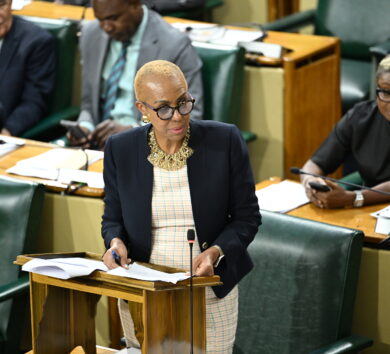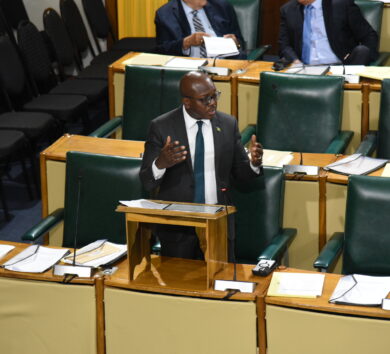Move follows a downgrade of Suriname’s credit rating by Fitch

The International Monetary Fund (IMF) has disclosed that the government of Suriname, a Dutch dependency, has made an appeal for help.
The disclosure was made by the IMF through its Western Hemisphere Department, which has formally advised that the Government of Suriname has turned to the fund for financial support.
In a statement yesterday regarding its technical discussions with Suriname, the IMF said: “The Surinamese government has recently requested financial support for their economic plan aimed at tackling the country’s macroeconomic vulnerabilities and putting Suriname back on a path of strong, sustained, and equitable growth.”
The IMF statement indicated that the Surinamese authorities have retained financial and legal advisors to help address issues relating to the country’s public debt and have begun the process of engaging with creditors.
“An IMF team and the Surinamese authorities have been engaged, via video teleconferencing, in a very constructive and close dialogue. These talks are ongoing. The team will communicate further at the end of these technical discussions,” the IMF statement concluded.
FITCH DOWNGRADES SURINAME’S CREDIT RATING
Last month the international credit ratings agency, Fitch, downgraded Suriname’s Long-Term Foreign-Currency Issuer Default Rating to ‘C’ from ‘CC’. The downgrade reflects Fitch’s view that a process of default has begun.

On October 22 this year, the Government of Suriname announced that it intends to enter a 30-day grace period on the US$25.4 million interest payment on its US$550 million 2026 notes due October 26. Further, Fitch has assessed that the Government of Suriname has begun a distressed debt exchange process upon its announcement of a default.
The government reported that it will take advantage of the 30-day grace period to engage with its external financial creditors and international partners to find a constructive and collaborative resolution to the debt sustainability issues the country is currently facing. The Surinamese government has encouraged holders of its 2023 and 2026 notes to register with an identification agent.
This is consistent with public statements by the country’s new administration, which was inaugurated July 16 under the presidency of Chandrikapersad Santokhi. Suriname’s national debt law imposes a statutory requirement on the minister of finance to present a debt reduction and management plan within two months of a breach of the government debt ceiling of 95 per cent of Gross Domestic Product (GDP), which Fitch has surmised has occurred.
DETAILS OF DOWNGRADE
Fitch has downgraded Suriname’s unsecured foreign currency ratings on Suriname’s US dollar 2023 and 2026 notes to ‘C’ from ‘CC’. The government previously restructured the 2023 bonds in July 2020.
Failure to deliver the 2026 interest payment during the grace period would put the sovereign debt into ‘Restricted Default’ and the specific bond into ‘Default’. A foreign commercial debt restructuring that entails a material reduction in terms and is necessary to avoid a traditional payment default constitute a distressed debt exchange, according to Fitch’s Sovereign Rating Criteria.

Suriname’s central government debt remains high with the forecast at 137 per cent of GDP by December 2020, excluding any agreement with creditors, and the government deficit is structurally wide. Shortages of foreign currency remain material for the economy with a large devaluation in September.
The government’s financing conditions are distressed amid curtailed multilateral and foreign market access. Three-quarters of the debt is denominated in foreign currency (including US$313 million foreign-currency domestic liabilities), rendering debt sustainability vulnerable to devaluation of the Suriname dollar.
BREAKDOWN OF CENTRAL GOVERNMENT DEBT
The breadth of the Government of Suriname’s restructuring plans has not yet been disclosed. Suriname’s central government debt totaled US$3.12 billion as of July valued at end-September exchange rates. Of this, US$2.04 billion (65 per cent) was external debt, US$313 million (10 per cent) was issued in foreign currency in the domestic market and the equivalent of US$770 million (25 per cent) in Suriname dollars in the domestic market.
External debt includes market debt of US$835 million (27 per cent of the total), bilateral liabilities of US$556 million (18 per cent of the total), of which China represents US$304 million (10 per cent of the total), and multilateral liabilities of US$651 million (21 per cent of the total).







Comments